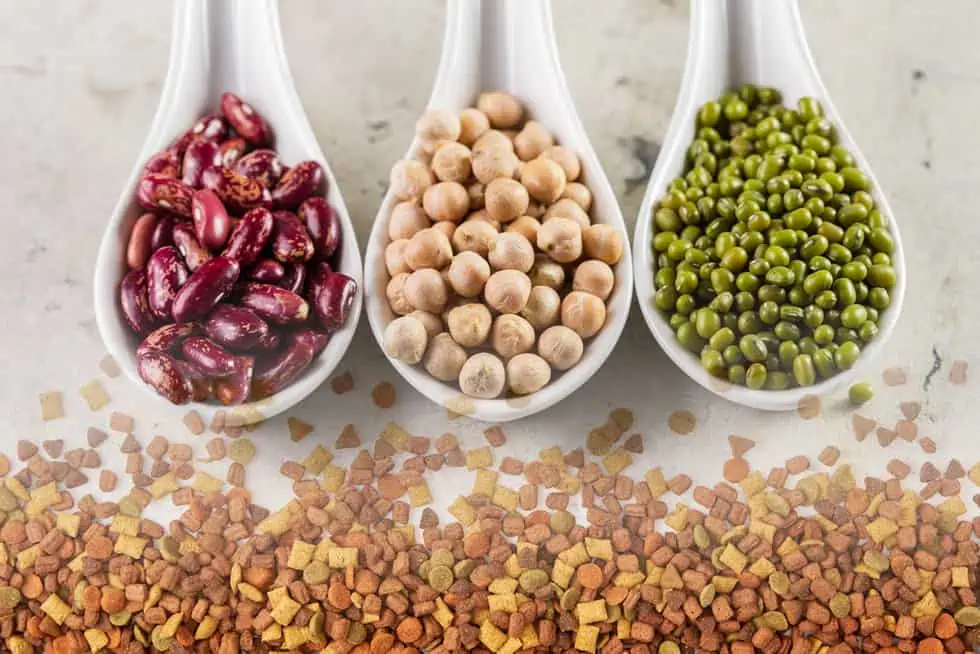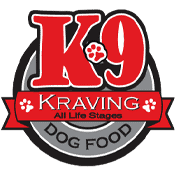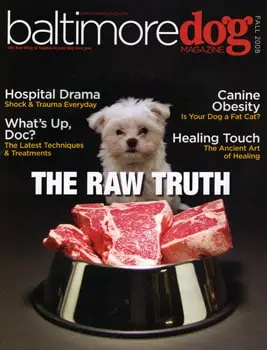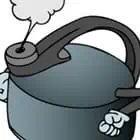Taurine Deficiency Concerns

Over the past several months, since the FDA posted a preliminary warning regarding a link between [canine] Dilated Cardiomyopathy (DCM) and “grain-free” diets – we have received a number of emails from K-9 Kraving feeders/grain-free feeders looking to better understand the warning and risks.
“FDA Investigating Potential Connection Between Diet and Cases of Canine Heart Disease”
So, here’s what the FDA warning from the above article stated, “We are concerned about reports of canine heart disease, known as Dilated Cardiomyopathy, in dogs that ate certain pet foods containing [peas, lentils other legumes or potatoes] as their MAIN INGREDIENTS,” said the FDA’s Dr. Martine Hartogensis.
Some of these dogs had low whole blood levels of the amino acid taurine and taurine deficiency is known to potentially lead to DCM. Veterinarians and canine nutritionists have never worried too much about taurine in the past. Unlike cats, dogs and humans can make taurine in their bodies if they have a good diet.
Dr. Richard Patton, PhD – Animal Nutrition offers, “Taurine abounds in raw fresh meat, muscle tissue, and organ meat”.
Not all Grain-Free Diets are Equal
It’s important to note that NOT ALL grain-free diets are the concern. Only those that list potatoes or multiple legumes such as peas, lentils, other ‘pulses’ (seeds of legumes), and their protein, starch, and fiber derivatives early in the ingredient list. There are many raw diets, fresh-cooked/frozen diets, canned diets, and even a few dry/kibble diets that are grain-free and they do not contain potatoes, peas, lentils or other seeds of legumes.
In short:
A.) K-9 Kraving is 76% fresh muscle meat and organ meat, key providers of Taurine.
B.) Although we do utilize 2% of Sweet Potato in our diet, it is not white potato, nor a main ingredient.
https://www.k-9kraving.com/brand-training/
Although the FDA is reporting a link between diet and taurine deficiency, researchers are continuing to try and find the exact cause. One theory is that one or more of the suspect ingredients (peas, lentils, legumes, potatoes) inhibits Taurine reabsorption into the body. Another theory is that providing diets that have low levels of animal proteins does not ensure adequate taurine intake. Taurine is found naturally in animal-based proteins but is not found in plant-based protein sources.
Please share this post with anyone you know who has shared concerns about Taurine Deficiency and DCM.
What is DCM?
DILATED CARDIOMYOPATHY (DCM) is a disease of the heart muscle that is characterized by an enlarged heart that does not function properly. With DCM, both the upper and lower chambers of the heart become enlarged, with one side being more severely affected than the other. Read more about DCM
What is Taurine?
TAURINE is part of the Amino Acids family:
AMINO ACIDS are building blocks of protein and include (alphabetical order):
- Arginine
- Histidine
- Isoleucine
- Leucine
- Lysine
- Methionine & Cysteine
- Phenylalanine & Tyrosine
- Taurine
- Threonine
- Tryptophan
- Valine
Amino acids are the building blocks of proteins and their derivatives. Proteins include a total of 20 different amino acids, only 11 (cats) or 10 (dogs) of which are essential; that means they cannot be produced by the body so must be provided in the diet.
ROLE IN THE BODY: Amino acids are required by the body to ensure healthy physiological function. Without essential amino acids, the growth of kittens and puppies will be slow, and health may be compromised. Processes such as nitrogenous waste elimination and hemoglobin synthesis will be disrupted in deficient adult animals.
COMMON SOURCES: All dietary proteins of animal or plant origin are composed of a series of chemically bound interlinked amino acids. Dietary proteins of ‘high biological value’ are those that combine good digestibility and a high content of essential amino acids, such as egg, meat (including organ meats such as heart, kidney, liver and lung), fish proteins and cereal glutens.
DEFICIENCY: The absence of any of the essential amino acids from the diet stops the synthesis of essential proteins. Under these conditions, the animal then breaks down body tissue to provide the required amino acids, seriously compromising health.
TAURINE Effects: Healthy eyesight, healthy heart, natural antioxidant
Source
TAURINE is a Sulphur amino acid found in most animal tissue. Unlike other essential amino acids, it does not have any role in protein synthesis. For reasons yet to be fully understood, wet cat food requires twice the level of taurine supplementation of dry food, to allow the cat to absorb adequate levels of the nutrient.
ROLE IN THE BODY: Taurine enables the liver to synthesize bile salts. It also works by regulating calcium flow into and out of the cells and has a role in healthy cardiac function. Taurine is required for healthy reproduction, healthy eyesight and hearing. It is an important antioxidant, as well as playing a role as a precursor for the synthesis of complex fats (glycosphingolipids), that support the barrier function of the skin.
COMMON SOURCES: Animal protein sources, in particular the organs (e.g. HEART, KIDNEY, LIVER), are the main natural sources of taurine.



